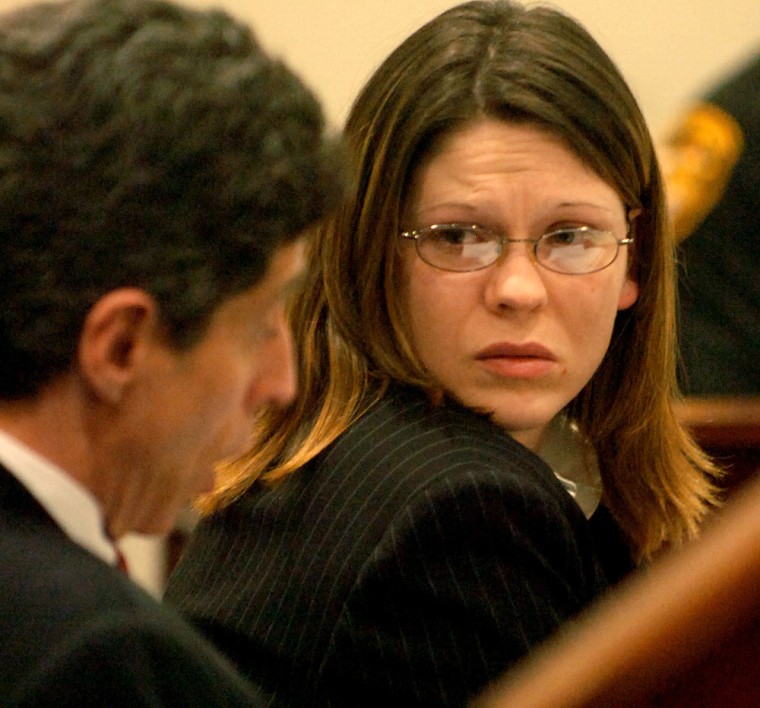A judge sentenced a woman Thursday to 54 years to life in prison for causing the death of her 3-year-old developmentally disabled foster son by leaving him bound cocoon-like in a closet.
A day earlier jurors convicted Liz Carroll, 30, of murder, involuntary manslaughter, kidnapping, felonious assault and three counts of child endangerment
Under the life sentence for murder, she has no possibility for parole for 15 years. The sentences on all charges, including 10 years for kidnapping, totaled 54 years to run consecutively. Clermont County Common Pleas Judge Robert Ringland said an additional 10-year sentence for involuntary manslaughter would merge with the murder sentence.
Jurors who deliberated about five hours decided she caused foster son Marcus Fiesel's death, though unintentionally, by leaving him alone, bound in a blanket and packing tape, while she went to a family reunion in Kentucky. The case triggered pushes for changes in Ohio's foster care system.
Carroll, who did not testify during trial, said Thursday she was not responsible.
"I didn't do this to Marcus," she said. "I did not and would not ever hurt a child."
Ringland told Carroll that no matter how much she blamed other people, she had to accept responsibility, and he also said that she hadn't seemed sorry for the boy's death.
"There has never been a sincere concern for Marcus Fiesel," Ringland told her. "Even to this day, the only remorse is that you are being found guilty and not the death of this child."
Husband allegedly burned boy’s body
Her husband David Carroll Jr., 29, faces trial in March on the same charges as his wife. He is additionally charged with gross abuse of a corpse, for allegedly burning the boy's body and then dumping the remains in the Ohio River.
Prosecutors say the Carrolls decided to try to cover up the death after finding the boy dead when they returned from the reunion last August. They claimed he had wandered off or had been snatched from a park in suburban Cincinnati; thousands of volunteers fanned out to search for him.
The couple's live-in companion, Amy Baker, was a key state witness. Prosecutors had Liz Carroll's contradictory grand jury testimony read to the jurors and also played video of her August press conference in which she appealed for public help in finding a boy she knew was dead.
In her grand jury testimony, she at first continued to insist that the boy had disappeared in a park, but finally admitted that she knew he had died in the closet at her home. She said she didn't intend to hurt him; prosecutors told the jury here that didn't matter because her criminal acts caused his death.
Baker has not been charged, but acknowledged that she helped dispose of the child's body. Prosecutors agreed not to prosecute her in exchange for her testimony against the couple, unless evidence shows she had hands-on involvement in the boy's death.
Other charges pending
The Carrolls also face trial on lesser charges, including perjury and inducing panic, in Hamilton County, where they said Fiesel had disappeared.
The Ohio Department of Job and Family Services said after an investigation that the Carrolls were unqualified to care for Fiesel and cited failure to check references and inadequate home study and follow-up visits. It moved to revoke the license of Lifeway for Youth, a private agency that helped place the boy with the Carrolls, and Lifeway then ended its Ohio operations, which began in 1994.
The state report recommended increased training of foster parent applicants and those who assess them; thorough background checks that would include credit and residence histories; drug testing of applicants; more data-sharing among agencies, courts and law enforcement; and increased state staffing for foster-care oversight.
Legislative reform measures are expected this year .
